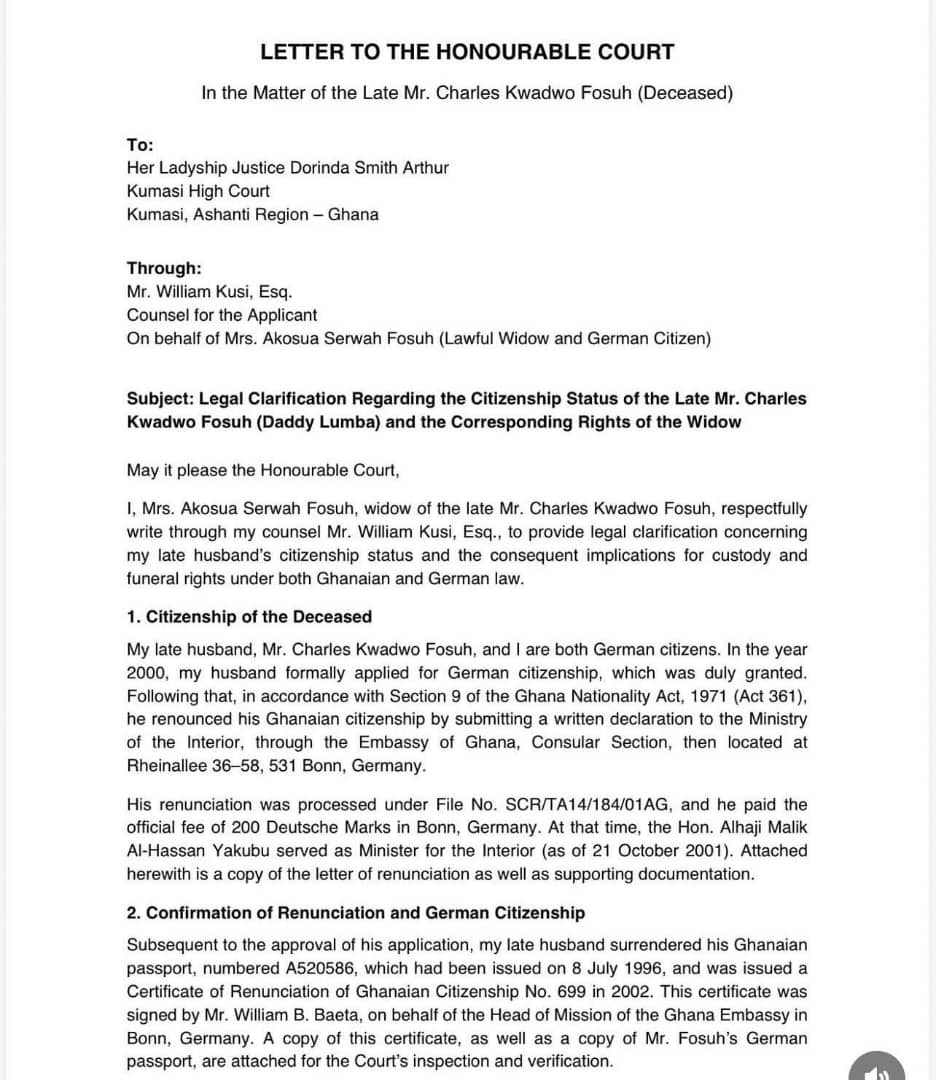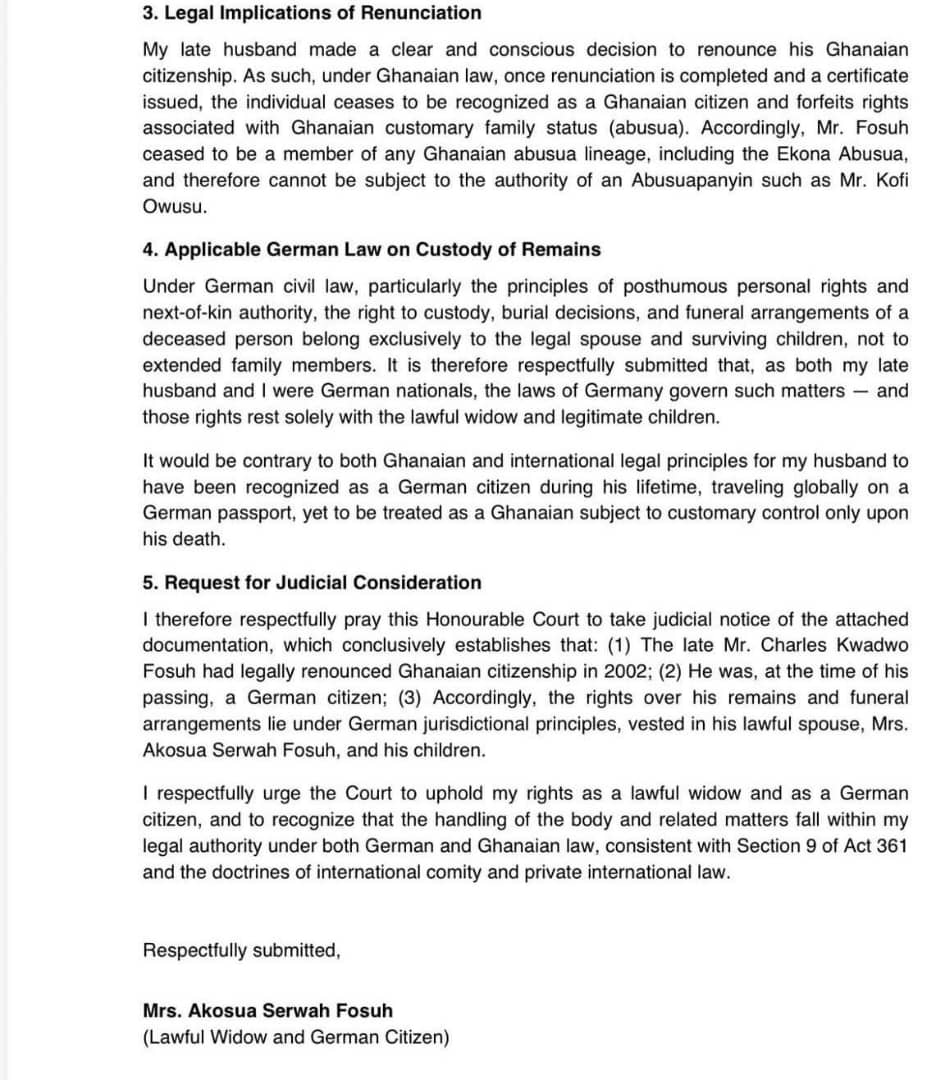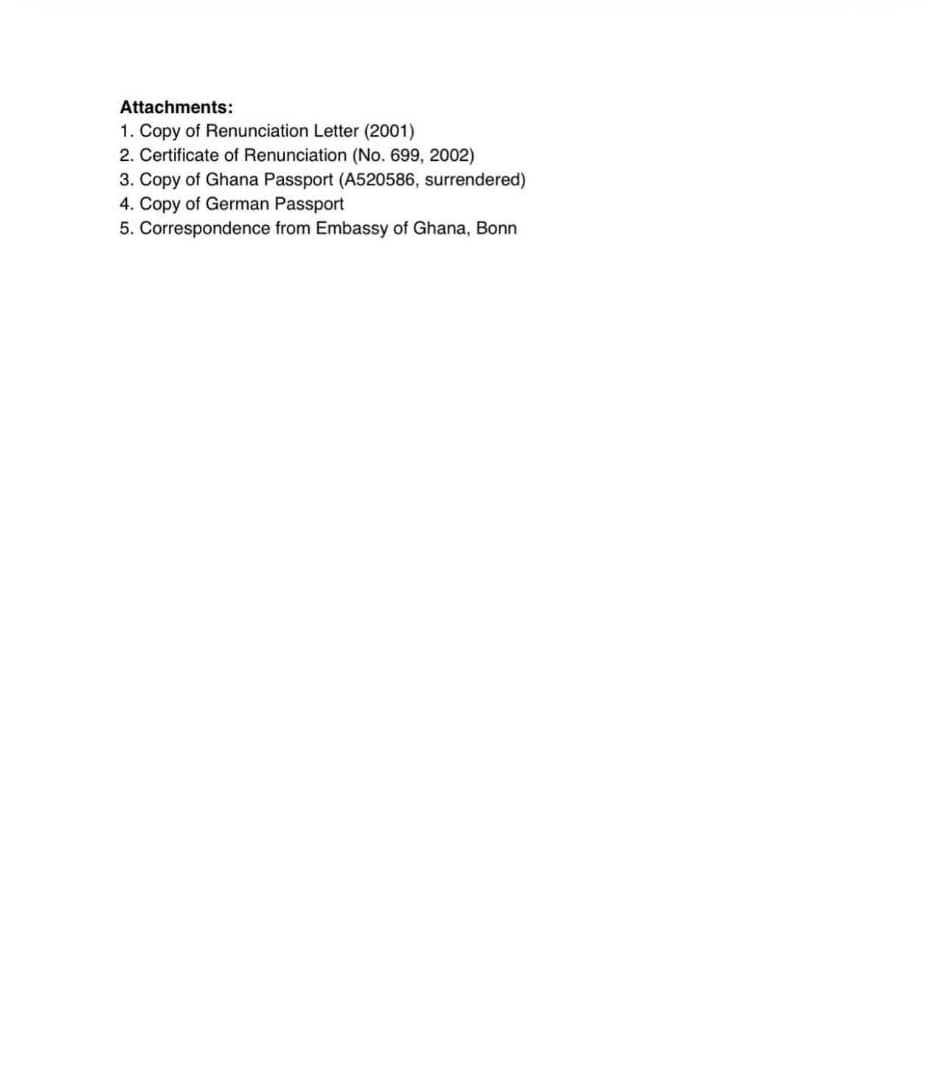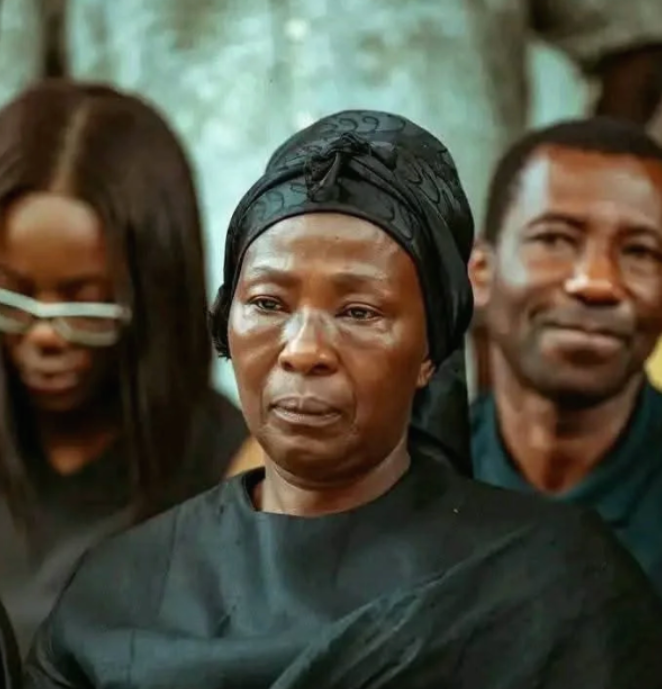Music legend Daddy Lumba, his widow, Mrs. Akosua Serwah Fosuh, has formally informed the Kumasi High Court that she and her children hold the exclusive right to decide on the custory and funeral arrangements of the late star under German law.
The assertion was made in a detailed legal letter submitted through her lawyer, William Kusi, Esq., which contends that the late Charles Kwadwo Fosuh had legally renounced his Ghanaian citizenship and was solely a German citizen at the time of his death.
The document, addressed to Her Ladyship Justice Dorinda Smith Arthur, provides what it presents as conclusive evidence of the singer’s citizenship status. It states that after being granted German citizenship in 2000, Daddy Lumba formally renounced his Ghanaian nationality under Section 9 of the Ghana Nationality Act.
According to the filing, the renunciation was processed by the Ghana Embassy in Bonn, Germany, under File No. SCR/TA14/184/01AG. The late musician was subsequently issued a “Certificate of Renunciation of Ghanaian Citizenship No. 699” in 2002 and surrendered his Ghanaian passport.
“My late husband, Mr. Charles Kwadwo Fosuh, and I are both German citizens,” Mrs. Fosuh stated in the court document, attaching copies of the renunciation certificate and his German passport for verification.
The widow’s legal argument is straightforward: since Daddy Lumba was not a Ghanaian citizen, the administration of his final rites falls under German law, which grants these rights to the immediate family the spouse and children.
This legal clarification directly challenges any competing claims from other quarters of the family based on Ghanaian customary law. It seeks a judicial declaration to affirm her position and potentially preempt a prolonged familial conflict over the burial of the iconic musician, whose passing has left a nation in mourning.
The court’s ruling on this matter is now highly anticipated, as it will not only determine who has the final say in laying the “Aben Wo Ha” hitmaker to rest but could also set a significant precedent for the estates of other Ghanaian dual citizens.


 Source:Lovinghananews.com
Source:Lovinghananews.com


